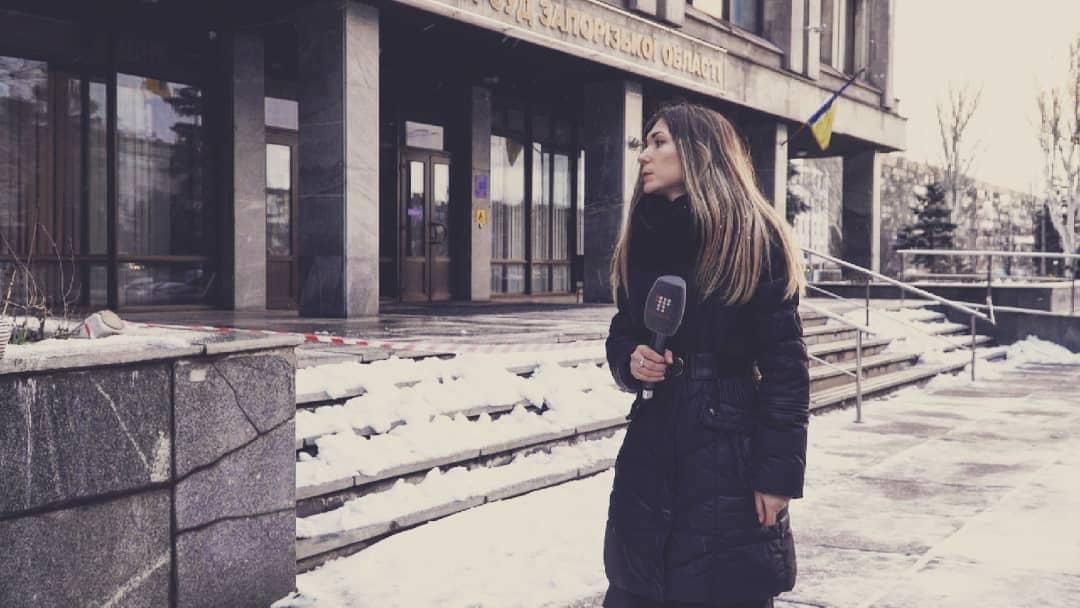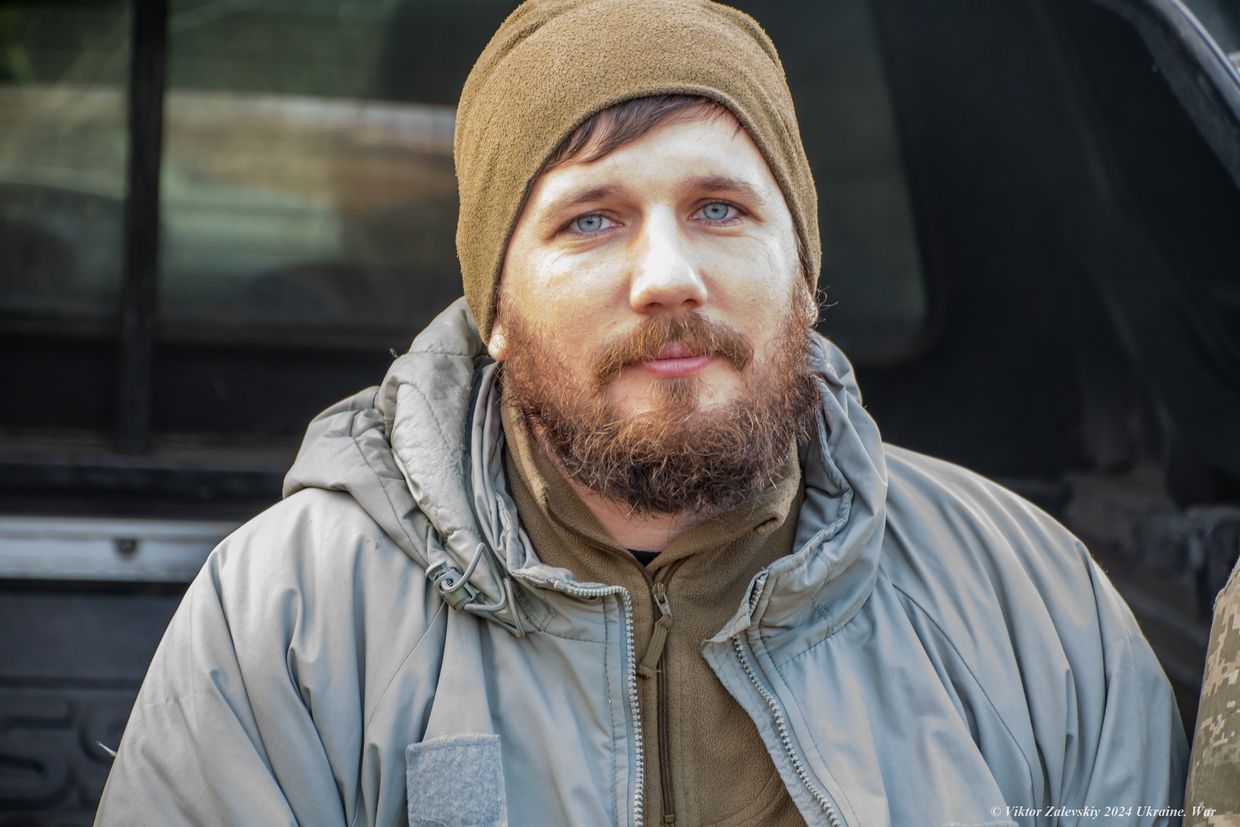What we know about Ukrainian journalist Viktoriia Roshchyna who died in Russian captivity

Ukrainian journalist Viktoriia Roshchyna, 27, was about to be released from Russian captivity and returned home, when the news of her death broke out on Oct. 10, shocking Ukraine and the world.
Roshchyna disappeared in August 2023 while reporting in Russian-occupied territory.
More than half a year later, Russia's Defense Ministry finally confirmed she was in captivity.
Since then, many journalists, activists, and organizations have advocated for her release.
But hopes to see Roshchyna back in Ukraine and read more of her powerful reports shattered when Ukrainian authorities confirmed her death in Russian captivity.
Andrii Yusov, a spokesperson for Ukraine's military intelligence agency, told Suspilne media outlet that Roshchyna was supposed to be included in an upcoming prisoner exchange.
She was reportedly held in an infamous pre-trial detention center in the Russian city of Taganrog, known for the use of torture against the captives. Yusov said her return had been agreed upon, and the latest known information is that she was transferred to Moscow’s Lefortovo prison, “in preparation for her return home.” Roshchyna reportedly died on Sept. 19.
Petro Yatsenko, a spokesperson of Ukraine's Coordination Headquarters for the Treatment of Prisoners of War, said on national television on Oct. 10 that the circumstances of Roshchyna’s death are still being confirmed.
At least 91 media workers have been killed by Russia’s full-scale invasion, including both those on assignment and those who had joined Ukraine’s Armed Forces. Another 30 media workers remain in Russian captivity.
There have been multiple reports of Ukrainian prisoners of war (POWs) being tortured or killed while in Russian captivity. According to Victoria Tsymbaliuk, a representative of the Ukrainian Coordination Center for the Treatment of POWs, at least 177 Ukrainian prisoners have died in Russian captivity since Feb. 24, 2022.

"Victoria’s passing is not just the loss of a remarkable woman, but of an intrepid witness to history. Regardless of her cause of death, we can say with certainty that her life was taken because she dared tell the truth," the International Women’s Media Foundation (IWMF) said in a statement on Oct. 10.
"We hope her death will not be in vain: The international community must pressure Russia to cease targeting journalists and silencing press freedom."
‘A journalist through and through’
For Roshchyna, journalism was not just a job — it was her calling and her whole life, as her friends and colleagues pointed out in numerous posts on social media following the news about her death.
She started working as a journalist when she was still a teenager, often covering the most important topics and events for Ukraine.
"All of her topics were either connected to the war, organized crime or prosecution of activists," says the head of the Kyiv Independent’s War Crimes Investigations Unit Yevheniia Motorevska, who worked with Roshchyna at Ukrainian media outlet Hromadske until 2022.
When Russia launched the full-scale war, Roshchyna was reporting from Shchastia in Luhansk Oblast, one of the first cities that fell under occupation back then. She later covered Russia's full-scale invasion for multiple Ukrainian news outlets, including Ukrainska Pravda, and Radio Free Europe/Radio Liberty (RFE/RL), sometimes even risking her life and traveling to Russian-occupied areas to report from there.
"She believed journalists must write only about what they have witnessed firsthand. It was very important to her to communicate directly with the people living under occupation, with those living in combat zones," Motorevska says.
"She believed in journalism and her mission so deeply that it was more important than anything else. She always said, 'I'm a journalist and I need to be there.' Whether it was (Russian-occupied) Shchastia, Enerhodar, or Berdiansk."
"She always said, 'I’m a journalist and I need to be there.'"
In March 2022, Roshchyna was detained for 10 days by Russian Federal Security Service (FSB) officers while leaving occupied Berdiansk and heading toward occupied Mariupol. Upon her release, she wrote in a column for Hromadske that even though she was threatened by Russians, she "did not feel fear."
"There was only despair due to the uncertainty and wasted time, the inability to do work," she wrote.
In 2022, the IWMF awarded Roshchyna the Courage in Journalism Award.
Journalist Anastasiia Stanko wrote on X that Roshchyna "was one of the very few who lived and died for this profession."


"... For the sacred belief in the importance of seeing things with her own eyes and telling others about it. No matter how terrifying it was. And I feel very, very sad that all these beliefs are crumbling like dust," Stanko wrote.
"She was one of those journalists who didn’t wait for editorial assignments. As soon as something happened, Vika was already there — at protests, clashes, crime scenes. She took on the toughest challenges, loved covering law enforcement topics, and attended high-profile and important court hearings. Time and geography didn’t matter to her — at any moment, Viktoriia was ready to go on assignment even before being told to go. She didn’t have weekends, vacations, or sick leave days," Hromadske said in a statement.
Anna Babinets, head of the Slidstvo.Info investigative media outlet, wrote on Facebook that Roshchyna's colleagues considered her "unstoppable."
"Her thirst for doing journalism, for doing the impossible, overcame her instinct for self-preservation. And the Russians killed her," she went on.
"Her thirst for doing journalism, for doing the impossible, overcame her instinct for self-preservation. And the Russians killed her."
"She was ready to die for her right to be a journalist; this constantly pushed her toward places where death was," Katerina Sergatskova, board member of Hromadske, wrote on Facebook.
"I regret that we couldn’t save Viktoriia Roshchyna, a journalist through and through," she said.
Roshchyna was "incredibly brave," according to Sevgil Musaieva, the chief editor of Ukrainska Pravda.
"She tackled the toughest topics. It was important for her to tell the stories of Ukrainians in occupied territories. She was impossible to stop or hold back. She was fully dedicated to journalism," Musaieva wrote on Facebook.
"Viktoriia was supposed to be exchanged in mid-September. She was meant to return home. Russia killed Vika."
Note from the author:
Hi! Daria Shulzhenko here. I wrote this piece for you. Since the first day of Russia's all-out war, I have been working almost non-stop to tell the stories of those affected by Russia’s brutal aggression. By telling all those painful stories, we are helping to keep the world informed about the reality of Russia’s war against Ukraine. By becoming the Kyiv Independent's member, you can help us continue telling the world the truth about this war.











